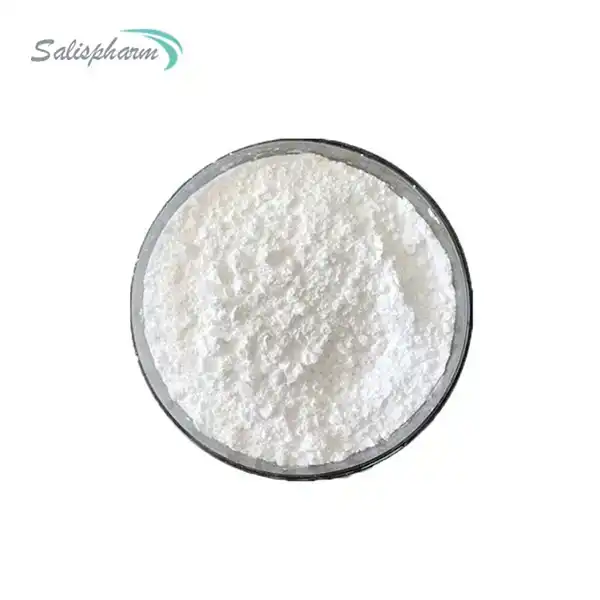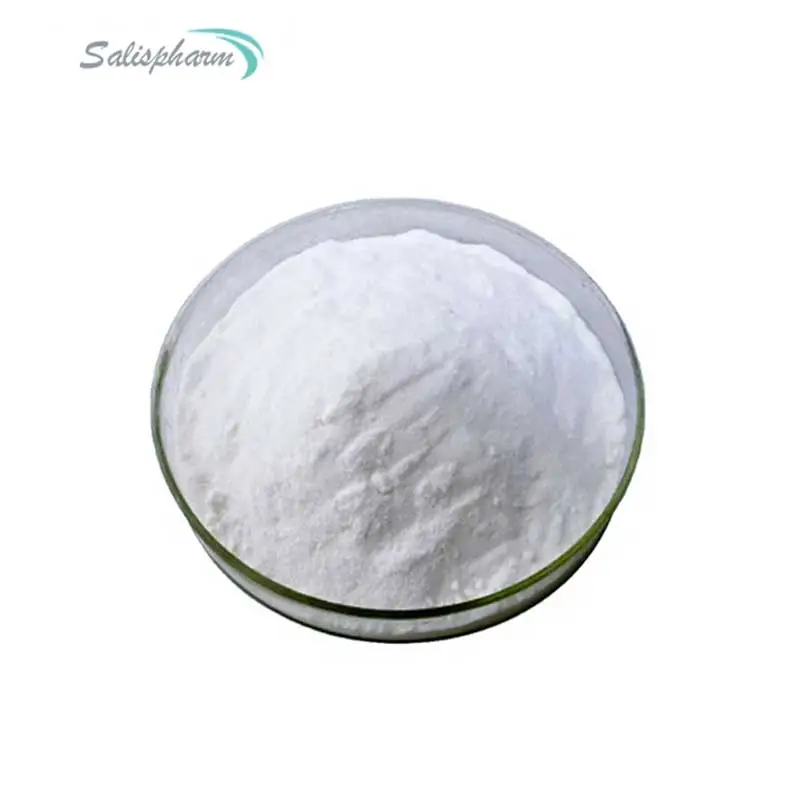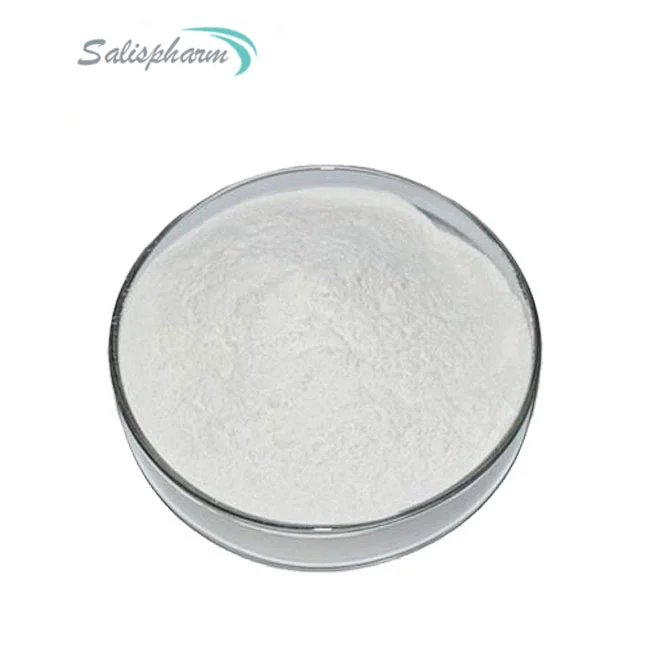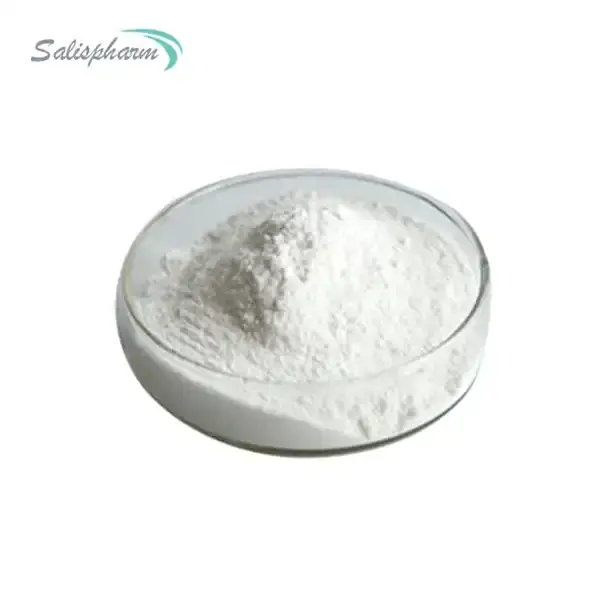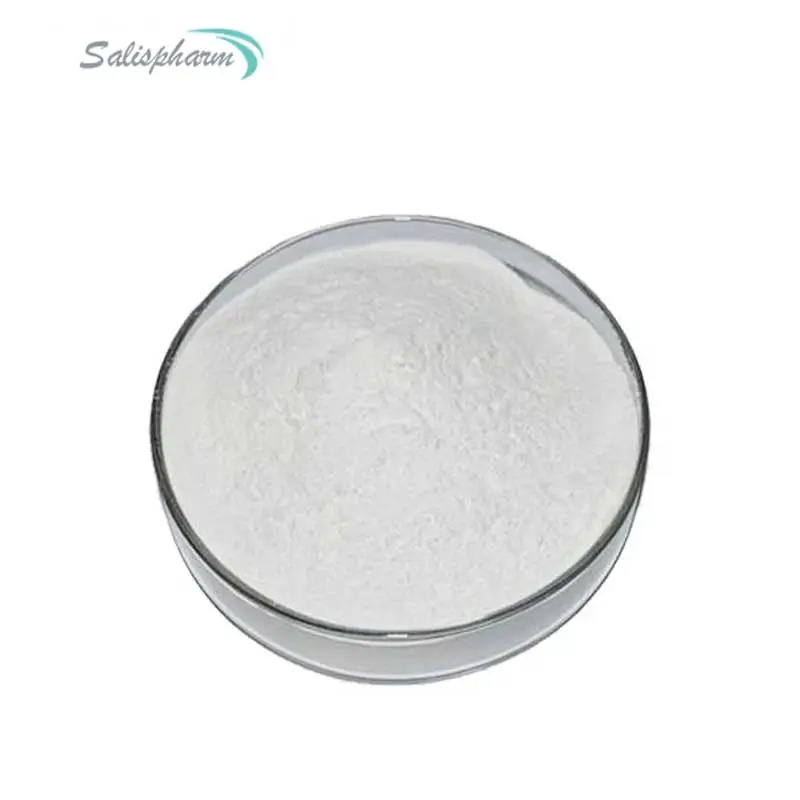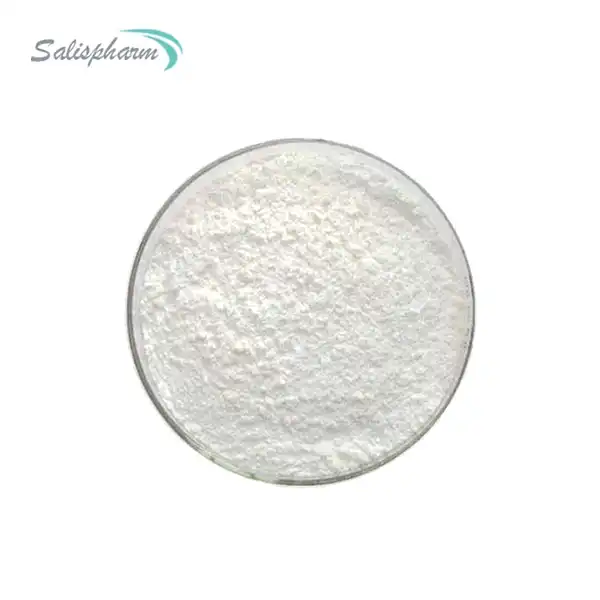Diosmin powder is gaining popularity in the skincare industry as a natural ingredient with potential benefits for skin health and appearance. Derived from citrus fruits, diosmin is a flavonoid compound that has been traditionally used in medicinal applications for its anti-inflammatory and vascular-protective properties. In recent years, it has found its way into skincare formulations due to its antioxidant and circulation-boosting effects. This article will explore the role of diosmin powder in skincare, its potential benefits, and how it can be incorporated into your beauty routine.
How does diosmin powder benefit skin health?
Diosmin powder offers several potential benefits for skin health, primarily due to its antioxidant and anti-inflammatory properties. As a powerful antioxidant, diosmin helps protect the skin from oxidative stress caused by free radicals, which are unstable molecules that can damage skin cells and accelerate aging. By neutralizing these free radicals, diosmin may help prevent premature aging signs such as fine lines, wrinkles, and uneven skin tone.
One of the key advantages of diosmin is its ability to improve microcirculation in the skin. By enhancing blood flow to the skin's surface, diosmin can help deliver essential nutrients and oxygen to skin cells more efficiently. This improved circulation can result in a brighter, more radiant complexion and may help reduce the appearance of dark circles under the eyes.
The anti-inflammatory properties of diosmin can also be beneficial for those with sensitive or reactive skin. By calming inflammation, diosmin may help reduce redness, irritation, and puffiness, making it a potentially valuable ingredient for those with conditions like rosacea or acne-prone skin.
Moreover, diosmin has been shown to strengthen capillary walls, which can help improve skin elasticity and firmness. This property makes it particularly interesting for anti-aging skincare formulations, as it may help maintain a more youthful and resilient skin structure.
Some studies suggest that diosmin may also have a positive effect on lymphatic drainage, which can help reduce fluid retention and puffiness in the face. This property makes it a promising ingredient for eye creams and products targeting under-eye bags or facial swelling.
While more research is needed to fully understand the extent of diosmin's benefits in topical applications, early studies and anecdotal evidence suggest that it could be a valuable addition to skincare routines for those looking to improve overall skin health, combat signs of aging, and achieve a more radiant complexion.
What skincare products contain diosmin powder?
Diosmin powder is increasingly being incorporated into various skincare products due to its potential benefits for skin health and appearance. As consumers become more aware of this ingredient, many skincare brands are developing formulations that harness its properties. Here's an overview of the types of skincare products that commonly contain diosmin powder:
Serums and Concentrates: Diosmin is often featured in lightweight, fast-absorbing serums and concentrates. These products are designed to deliver a high concentration of active ingredients directly to the skin. Diosmin serums are typically formulated to target specific skin concerns such as improving circulation, reducing inflammation, and enhancing overall skin tone and texture.
Eye Creams: The delicate skin around the eyes can particularly benefit from diosmin's circulation-boosting and anti-inflammatory properties. Eye creams containing diosmin are formulated to help reduce puffiness, dark circles, and fine lines around the eye area. The ingredient's ability to strengthen capillaries may also help improve the appearance of under-eye bags.
Moisturizers: Some day and night creams incorporate diosmin powder to provide antioxidant protection and improve skin texture. These moisturizers often combine diosmin with other hydrating and nourishing ingredients to create a comprehensive skincare solution.
Anti-aging Products: Given its potential to improve skin elasticity and combat free radical damage, diosmin is frequently included in anti-aging formulations. These products may range from targeted treatments to all-in-one anti-aging creams designed to address multiple signs of aging.
Toners and Essences: Some brands are incorporating diosmin into toners and essences to provide an extra boost of antioxidants and skin-soothing benefits early in the skincare routine.
Masks: Face masks, particularly those designed for brightening and revitalizing the skin, may contain diosmin powder. These masks often aim to provide an intensive treatment that can improve circulation and give the skin a more radiant appearance.
Body Care Products: While less common, some body lotions and creams, especially those targeting cellulite or promoting circulation in the legs, may include diosmin as an active ingredient.
Sun Protection Products: Some advanced sunscreen formulations are beginning to incorporate diosmin for its antioxidant properties, which can complement the UV protection provided by traditional sunscreen ingredients.
When shopping for skincare products containing diosmin powder, it's important to consider the concentration of the ingredient and its placement on the ingredient list. Products with diosmin listed closer to the beginning of the ingredient list are likely to contain higher concentrations.
It's also worth noting that diosmin is often combined with other beneficial ingredients such as vitamin C, hyaluronic acid, or other antioxidants to create synergistic effects. When choosing a product, consider your specific skin concerns and look for formulations that address your needs comprehensively.
As with any new skincare ingredient, it's advisable to perform a patch test before incorporating diosmin-containing products into your routine, especially if you have sensitive skin. If you have any concerns or specific skin conditions, consulting with a dermatologist can help you determine if diosmin-based products are suitable for your skincare regimen.
Is diosmin powder safe for all skin types?
The safety and suitability of diosmin powder for different skin types is an important consideration for anyone looking to incorporate this ingredient into their skincare routine. While diosmin is generally considered safe for topical use, its effects can vary depending on individual skin characteristics and sensitivities.
For Normal Skin: Individuals with normal skin types typically tolerate diosmin well. The antioxidant and circulation-boosting properties of diosmin can provide overall skin health benefits without causing irritation or adverse reactions.
For Sensitive Skin: Those with sensitive skin should approach diosmin with caution. While its anti-inflammatory properties can potentially soothe sensitive skin, some individuals may experience mild irritation or redness. It's crucial for those with sensitive skin to perform a patch test before using any product containing diosmin and to start with lower concentrations.
For Oily and Acne-Prone Skin: Diosmin's anti-inflammatory properties may be beneficial for oily and acne-prone skin types. It could help reduce inflammation associated with acne and improve overall skin clarity. However, it's important to ensure that diosmin-containing products are non-comedogenic to avoid clogging pores.
For Dry Skin: Dry skin types may benefit from diosmin's ability to improve circulation, which can enhance the delivery of nutrients to the skin. However, diosmin alone may not provide sufficient hydration, so it's often best used in combination with moisturizing ingredients.
For Mature Skin: Older skin can particularly benefit from diosmin's antioxidant and circulation-enhancing properties. These effects may help combat signs of aging and improve skin elasticity. Mature skin types often tolerate diosmin well.
For Rosacea-Prone Skin: The anti-inflammatory and capillary-strengthening properties of diosmin might be beneficial for those with rosacea. However, individuals with this condition should consult a dermatologist before incorporating new ingredients into their skincare routine.
Potential Side Effects and Precautions:
While diosmin is generally well-tolerated, some individuals may experience side effects, including:
1. Skin irritation or redness
2. Itching or mild burning sensation
3. Allergic reactions (rare)
To minimize the risk of adverse reactions:
1. Always perform a patch test before using a new product containing diosmin.
2. Start with products that have lower concentrations of diosmin and gradually increase if well-tolerated.
3. If you have any existing skin conditions or are pregnant or breastfeeding, consult with a healthcare professional before using diosmin-based skincare products.
4. Be cautious when combining diosmin with other active ingredients, particularly other antioxidants or exfoliants, as this may increase the risk of irritation.
5. Pay attention to how your skin reacts and discontinue use if you experience persistent irritation or discomfort.
It's worth noting that while topical application of diosmin is generally considered safe, more research is needed to fully understand its long-term effects on different skin types. The concentration of diosmin in skincare products can vary, and higher concentrations may be more likely to cause irritation in sensitive individuals.
When incorporating diosmin powder into your skincare routine, it's best to start slowly and monitor your skin's response. If you have any concerns about using diosmin or are unsure if it's suitable for your skin type, consulting with a dermatologist can provide personalized advice based on your individual skin needs and any existing skin conditions.
In conclusion, while diosmin powder shows promise as a beneficial skincare ingredient for various skin types, its suitability can vary from person to person. By approaching its use with caution and awareness, most individuals can safely explore the potential benefits of diosmin in their skincare regimen.
If you are also interested in this product and want to know more product details, or want to know about other related products, please feel free to contact iceyqiang@aliyun.com.
References:
1. Paysant J, et al. (2008). "Effect of a standardized purified micronized flavonoid fraction on the microcirculation in chronic venous insufficiency." Journal of Vascular Research, 45(4), 323-331.
2. Manach C, et al. (2004). "Polyphenols: food sources and bioavailability." The American Journal of Clinical Nutrition, 79(5), 727-747.
3. Cesarone MR, et al. (2005). "Microcirculatory effects of total triterpenic fraction of Centella asiatica in chronic venous hypertension: measurement by laser Doppler, TcPO2-CO2, and leg volumetry." Angiology, 56(Suppl 1), S33-S37.
4. Ramelet AA. (2001). "Clinical benefits of Daflon 500 mg in the most severe stages of chronic venous insufficiency." Angiology, 52(Suppl 1), S49-S56.
5. Juteau N, et al. (1995). "The role of flavonoids in the treatment of chronic venous insufficiency." International Angiology: A Journal of the International Union of Angiology, 14(Suppl 1), 36-38.
6. Coleridge-Smith P, et al. (2005). "Venous leg ulcer: a meta-analysis of adjunctive therapy with micronized purified flavonoid fraction." European Journal of Vascular and Endovascular Surgery, 30(2), 198-208.
7. Scallon C, et al. (2013). "Flavonoids for treating venous leg ulcers." Cochrane Database of Systematic Reviews, (5), CD006477.
8. Gohel MS, Davies AH. (2009). "Pharmacological agents in the treatment of venous disease: an update of their use and efficacy." Angiology, 60(1), 36-42.
9. Nicolaides AN. (2005). "From symptoms to leg edema: efficacy of Daflon 500 mg." Angiology, 56(Suppl 1), S25-S32.
10. Lyseng-Williamson KA, Perry CM. (2003). "Micronised purified flavonoid fraction: a review of its use in chronic venous insufficiency, venous ulcers and haemorrhoids." Drugs, 63(1), 71-100.




